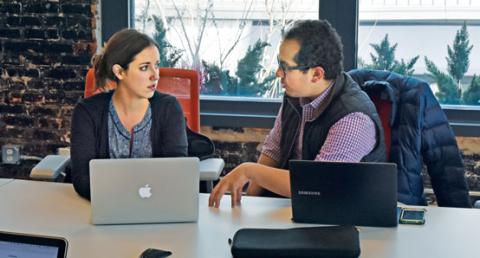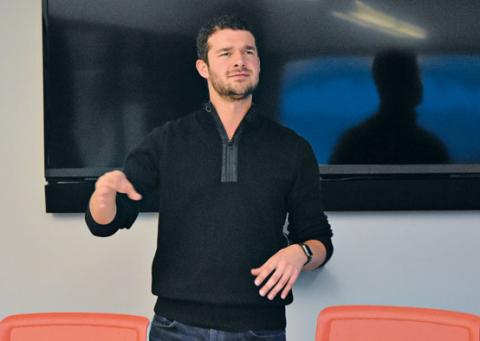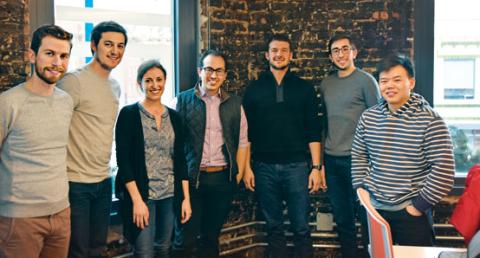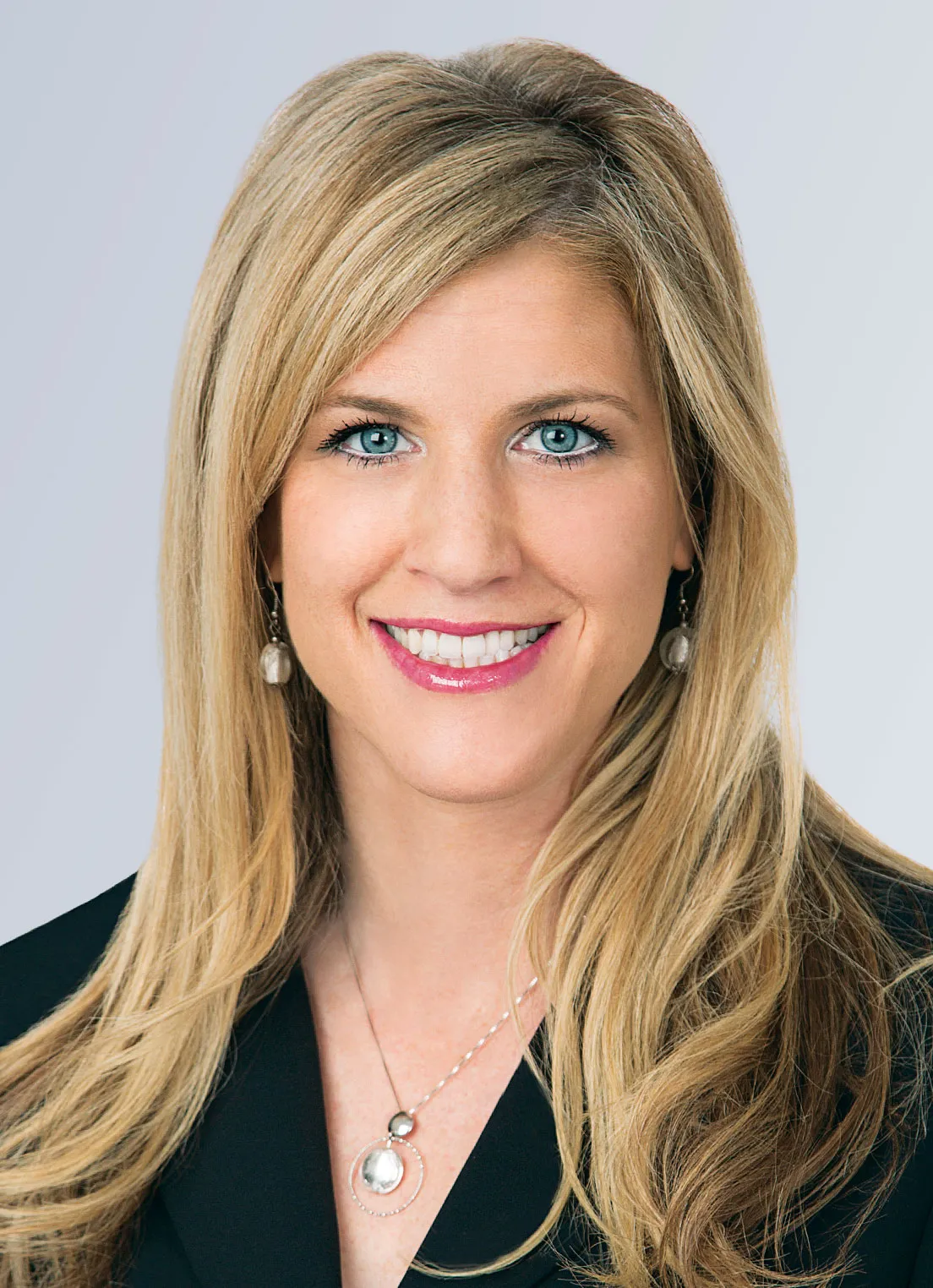Representing the Bleeding Edge: UChicago Law's New Innovation Clinic
Chicago has long been a great industrial city, and in recent years it has become a hotbed of venture capital and tech start-ups. Students at the Law School now have an opportunity to work directly in these emerging fields through the new Innovation Clinic. While many successful alumni have gone on to work with, and to themselves become, entrepreneurs after graduation, students now have the opportunity to begin such work while still at the Law School as participants in the new Innovation Clinic. The Clinic provides opportunities for students to jump into the myriad different legal challenges these enterprises face.
“I’ve had the chance to work with not only small, growing start-ups, but also with more established start-ups and venture funds, working on issues that nobody has ever dealt with before,” explained Clinic student Noah Driggs, ’17. “I probably would never have had the chance to do such work elsewhere while in law school.”
The clients of the Innovation Clinic are the companies and investors of the University’s Chicago Innovation Exchange, which helps scholars and entrepreneurs to turn their ideas and technological breakthroughs into viable businesses. The purpose of the new clinic, which opened in Fall 2015 under inaugural Bluhm-Helfand Director Salen Churi, is to help provide the specialized legal guidance these fledgling enterprises require. “Our student teams work directly with the start-ups housed at the CIE, offering them high-quality legal services, a relationship that is a win-win for both the students and the entrepreneurs,” he explained.
But the desire for establishment of the Clinic actually came from the students themselves. “We really wanted to harness the enormous student demand for direct involvement with early-stage companies, particularly in the technology space,” Churi said. Fortunately, alumna Leslie Bluhm, ’89, and her husband, David Helfand, who is a Booth graduate and copresident of Equity Group Investments, gave a generous gift to the Law School to support student participation in entrepreneurial activities.
Unsurprisingly, when the Clinic was announced the response was overwhelming. Churi was initially hoping to bring only three students into the Clinic for the first quarter, but that number quickly grew to seven because so many Law School students applied to the lottery. The student slots for the Clinic are full for the winter quarter as well.
Churi has made great efforts to make sure that the students’ individual goals are met by tailoring the work of students to their specific interests and experience. They each work directly with entrepreneurs and attend weekly meetings to review what has been accomplished and to strategize about what comes next. The Clinic also provides additional services directly to the Exchange. Churi holds office hours at the Exchange to allow new business owners to come in to ask questions and for advice. And attorneys at partner firm Perkins Coie work with the Clinic to provide workshops for Exchange entrepreneurs as well as serving as a knowledge bank for the Clinic. As Churi noted, “We provide what we can for free, but for other things, they need to go to a firm to get the help they need, such as a patent prosecution situation. But we can help them to figure out when that is necessary, and point them in the right direction when and if that time comes.” Some clinic students are also working as “venture associates” with the UChicago Innovation Fund at the Exchange. Those students have the chance to dig deep on new companies by going through the whole due diligence process from a business perspective. As part of this work they also learn from seasoned professionals about how such companies are evaluated, and they gain unique insight into the minds of both the investors and the entrepreneurs and begin to comprehend their incentives and the problems they face. “To my knowledge, no one else has law students doing work like this,” Churi stated.
Before work can even begin with a company, an intake process is used to determine the Clinic’s role in advising the start-up. Antonio Senra, ’17, engaged in this process, which is similar to those that both law and VC firms have for potential clients. “I led phone conversations with several start-up CEOs. The goal was broad—to determine the start-up’s legal needs. I had full discretion to steer the call in whatever direction I wanted. We cover topics such as the start-up’s legal issues, business model, and the entrepreneur’s personal story,” he said.
Once a start-up is accepted into the Clinic, students begin to offer the range of legal services that early-stage companies require, including advice on contracts and assistance with the ins and outs of obtaining financing. However, regulatory issues are also prevalent, and students wanted significant experience in that area. Churi reached out to Bradley Tusk, ’99, of the venture capital firm Tusk Ventures. Tusk, who assisted Uber with regulatory strategy, agreed to offer students in the Innovation Clinic the opportunity to work with their “bleeding edge” (ultra-new, undefined market) technology companies.
“We are incredibly lucky to have access to that kind of work, to have opportunities for students to work for companies that are sitting on the edge of innovation and that are coming up against legal and regulatory issues that do not fit today’s businesses,” Churi remarked. These companies must often determine whether it is worthwhile to change their structure and goals to comply with old regulations. This may be the right decision based on the type of business, or they might want to seek to change the regulations themselves, which requires an entirely different approach and very different work. “It’s very exciting for the students to help them make these decisions and to do the work that goes with those decisions. They are learning a tremendous amount about the world of innovation,” Churi added. “As innovative companies continue to disrupt old models, demand for innovative lawyers in this space will grow dramatically. My ambition is for our students to be at the vanguard of this burgeoning area.”
Fortunately, Tusk Ventures Managing Director Bob Greenlee, ’99, is very happy with the work the students are doing for his firm. “We—and our start-up clients—have had our expectations far exceeded by our relationship with the Innovation Clinic. We have been impressed by both the professionalism of the Clinic and its students and the team’s ability to understand start-ups’ needs for adaptability and responsiveness,” Greenlee noted, “and our clients have been blown away by the level of sophistication students of the Law School bring to their regulatory challenges.” The Innovation Clinic also plans to offer students the opportunity to work with other cutting-edge disruptive companies with unique regulatory challenges.
Such endeavors completely fascinate Churi. A 2011 Law School graduate, he worked at both Sidley Austin and Kirkland & Ellis, where he specialized in mergers and acquisitions and corporate law with fast-growing technology companies. But a part of him wanted to pass skills and knowledge on to others, so in 2013 he came back to teach at the Institute for Justice Clinic on Entrepreneurship, where he worked on overcoming the regulatory barriers and other legal challenges that small businesses face. “I have always been passionate about technology, and while I loved my work at the IJ Clinic, the Innovation Clinic has been a unique opportunity because it allows my students to help build the future alongside disruptive start-ups and venture capitalists,” Churi added.
Churi has big plans for the future of the Clinic. In years to come, he would like to grow the Clinic to include 15 or 20 students at a time, which would probably require the addition to the leadership team of a fellow trained to supervise students. He and the Law School are also working to build out an annual “Silicon Valley Trek,” an immersive trip to Silicon Valley to introduce students to entrepreneurs, venture capitalists, executives, and corporate lawyers, providing students with direct access to the Silicon Valley ecosystem and leveraging the Law School’s broad and accomplished alumni base in the region.
In the meantime, the Clinic is already achieving its initial goals to help students to gain experience in the world of venture capital investment and entrepreneurship, and the students could not be enjoying it more. Clinic participant Lisa Richards, ’17, not only enjoys Clinic time, but the time that follows. “After our weekly meetings, my classmates and I do not rush off to our next class or study group—we usually hang out in the hallway to talk about our projects and what’s happening in the tech world,” Richards said. “We’re genuinely interested in this stuff, and we like talking about it and learning from each other.”




